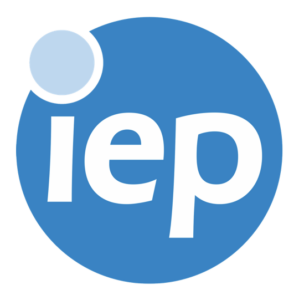
Ahead of IEP Group CEO Scott Parkin FIEP’s visit to Australia, he wrote to Tony Burke, Minister for Employment and Workplace Relations of Australia, to highlight the IEP’s contribution to the consultation that led to the final report on Workforce Australia Employment Services ‘Rebuilding Employment Services’ and welcoming its recommendations.
In his letter, Scott spoke about the IEP’s role and that we are here to participate, where we can, in helping these recommendations come to fruition. You can read the letter below:
Rebuilding Employment Services: Final Report on Workforce Australia Employment Services – Select Committee on Workforce Australia Employment Services
The IEP is pleased to have been able to contribute to the consultation that led to this report, and even more so to welcome its recommendations. Rather than responding in detail to the many recommendations, we think our role is to participate, where we can, in helping them come to fruition.
The IEP is an employability staff membership body; therefore, we are concerned that the Commission found that:
‘Generally, providers want to help people….. Almost without exception staff told us that they were consistently having to fight against the system to help their clients. There is ….. over 40 per cent turnover of frontline staff. Low paid, de- professionalised and de-unionised, many staff do not possess the skills or qualifications…..the system is …… choked with red tape, compliance, and inefficient IT systems’…..
Concerned, but familiar with the problem: governments and public agencies everywhere wrestle with delivering huge services to diverse individual clients in need of support. And those services are, and should be recognised as socially important, personally valuable, and economically essential.
The IEP isn’t best placed to comment on the organisational recommendations and NESA has already done that, taking its members’ own priorities and perspectives, but we recognise how organisation, legislation, resources, and obligations interact with the notions of responsibility, choice and effort, often to produce unproductive or harmful results. We recognise too, that within this system, the motivation and effort of delivery organisations and advisory staff is often excellent and is the best resource on which to build.
So, we hesitate to comment on organisational, contractual, and legislative matters while being strong advocates for a fully professional and professionalised service that is also a respecter of persons whomever they may be, and a respecter of businesses, employers, and communities. Our own work has adopted the view that where ‘having to fight against the system to help clients’ (Final Report p xii) becomes an issue, providers need to recognise the external constraints on their work and build them into their quality improvement and assurance activities. If wider improvements can be made in the Australian political context, that will be hugely helpful.
The IEP is committed to supporting organisations and individuals in the delivery of socially important, personally valuable, and economically essential employability services. Just as the Final Report has made significant recommendations that go to the heart of a functional and humane service, so too our approach has been to encourage that which works and that which embodies sound principles.
So, we are enthusiastic about the possibility of being helpful to the Australian ‘employability ecosystem’, in concert with the principles set out in the Final Report, and with respect for the worldwide evidence, with all its weaknesses and strengths – much of which, incidentally, originates in early Australian research sources.
To summarise our position, in over-brief points:
The IEP exists to help practitioners be the best they possibly can for their clients. This leads us to be:
• a professional membership organisation committed to applying evidence and supporting quality, and not ourselves delivering employability services
• with strong roots in service delivery organisations and
• working in cooperation with government and public bodies, private
sector, and NGOs.
Our position on what works, based on our own and academics’ reviews and research is consistent with the Final Report. ‘What works’ can be helpfully summarised as:
• giving clients skills to become or stay employed
• keeping employers closely involved
• building confidence, self-efficacy and motivation
• by applying excellent adviser – client relationships that are:
• sensitive to the social, linguistic, origin and other personal status
• underpinned by adequate resources and support
• under good leadership
• and capable of mitigating risks.
Our current tools, which we are extending and enhancing, for and with Australian partners, can be summarised as:
The IEP is active in Australia, where we have a growing base, currently with 14 organisations and 1600 members. We also have branches in Sweden and Canada. Originating in the UK, where we have 110 organisations and 8000 members, we are also developing services in KSA, UAE, South Korea, and The Netherlands.
The IEP Centre for Employability Excellence (CfEE) is developing an open- access database of indexed research, supported by experts, learned debate and seminars by international figures, and featuring the IEP Journal as an interface between academics and practitioners. This is already becoming a great source of knowledge for policy experts across the world.
The IEP Quality Improvement Framework brings all this to the point of application by organisations delivering services.
The IEP Learning Academy, offers a growing range of skill-training services for front-line practitioners, responding to the need to ‘possess the skills or qualifications to support an increasingly vulnerable and heterogenous client caseload’.
These brief headlines give an idea of the work and goals of the IEP; in supporting the Final Report we do so hope that we can also contribute at every level, as helpful participants in the journey towards better services.

